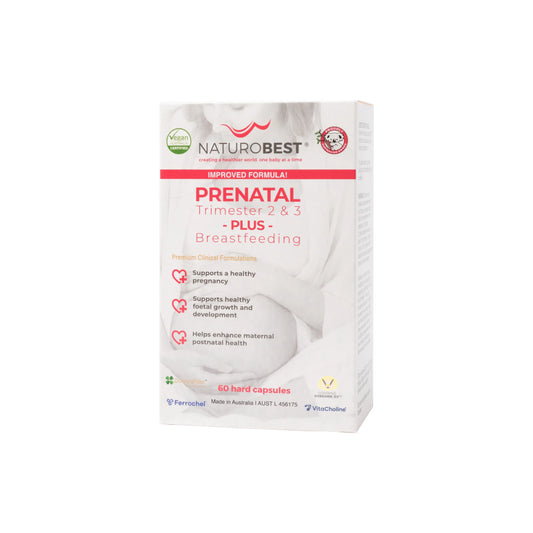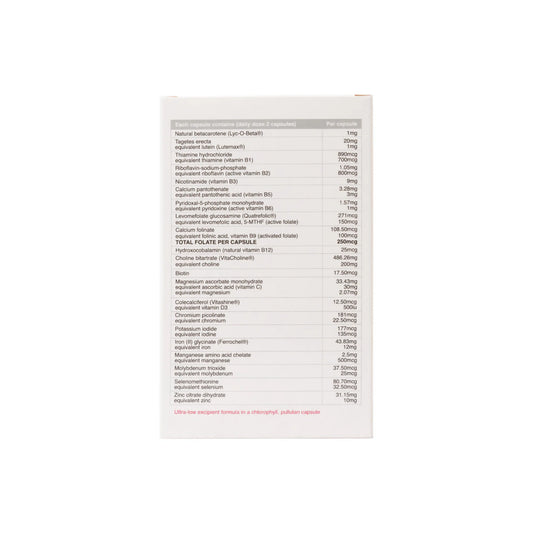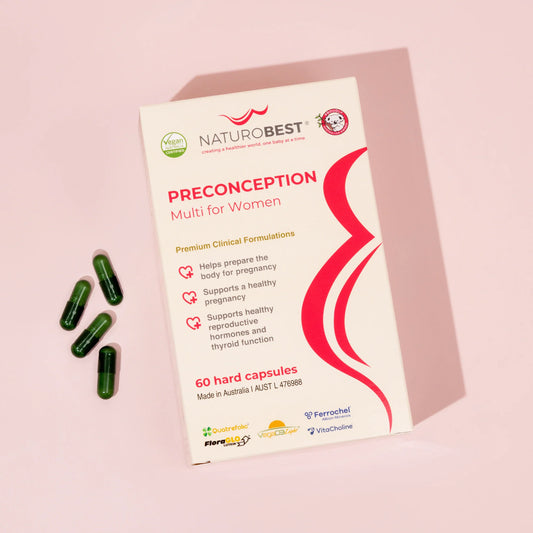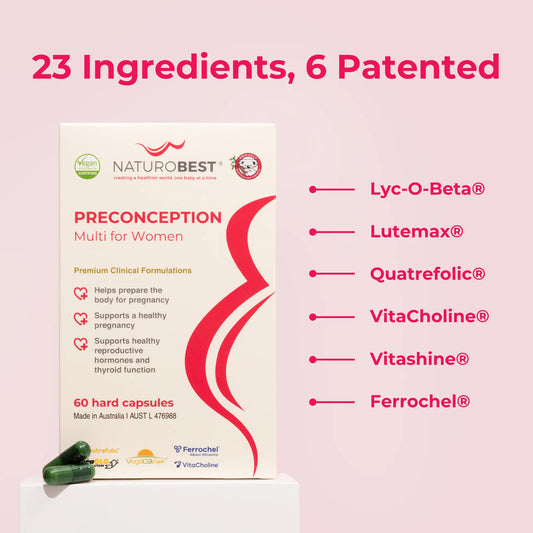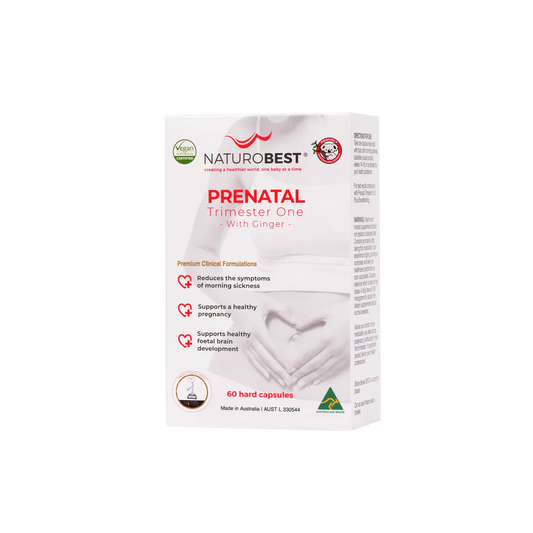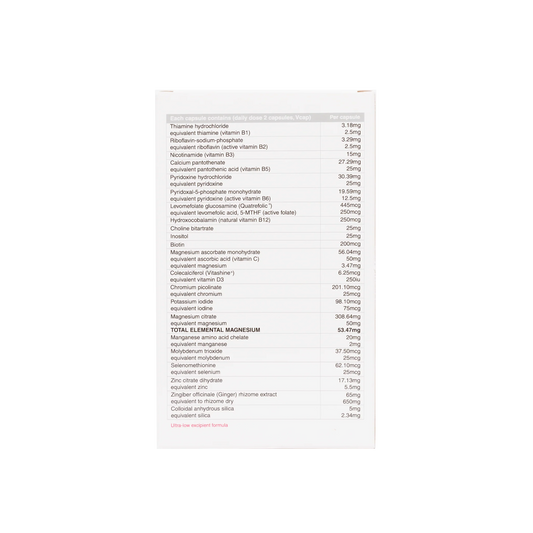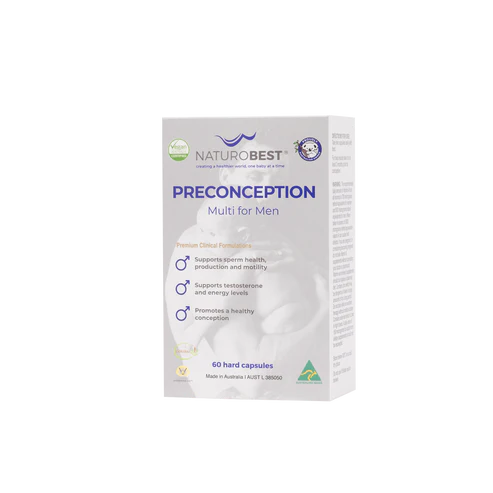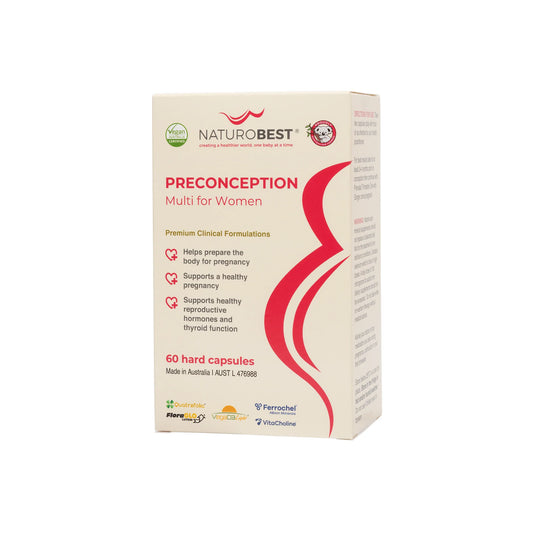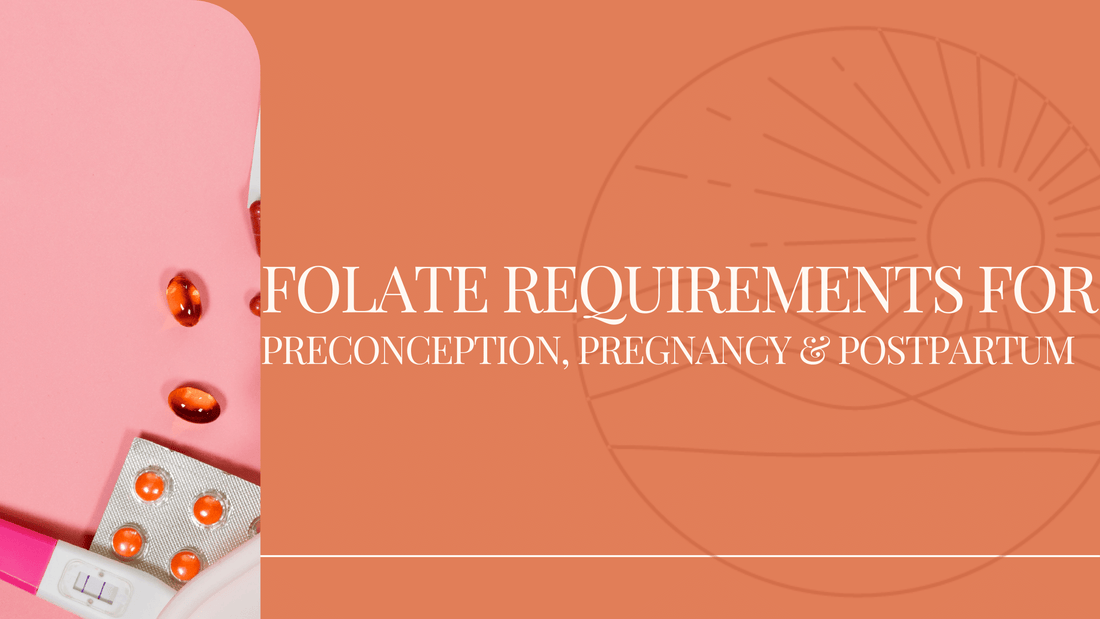
Folate, also known as vitamin B9, is an essential nutrient that plays a critical role in the development and maintenance of a healthy pregnancy. Folate is especially important during preconception, pregnancy, and postpartum, as it supports the healthy development of the foetus and helps prevent certain birth defects.
Preconception:
Preconception nutrition is important to ensure a healthy pregnancy. Adequate intake of folate before pregnancy helps to build up the body's stores of this essential nutrient, which is critical for the early stages of foetal development. Women who are planning to become pregnant should aim to consume 400-800 micrograms (mcg) of folate per day. This can be achieved through a combination of diet and supplements.
Pregnancy:
During pregnancy, the need for folate increases significantly. The recommended daily intake of folate during pregnancy is 600-800 mcg per day. This is because folate is essential for the formation of the neural tube, which develops into the brain and spinal cord. It also helps to form red blood cells, which carry oxygen to the baby during pregnancy.
Folate deficiency during pregnancy can lead to an increased risk of birth defects, such as spina bifida and anencephaly. To ensure adequate folate intake during pregnancy, women should consume folate-rich foods such as leafy green vegetables, fortified cereals, and legumes. Women may also need to take folate supplements, especially if they have had a previous pregnancy affected by a neural tube defect or if they have a family history of neural tube defects.
Postpartum:
After childbirth, the need for folate remains high. Adequate intake of folate is essential for the healthy development of the baby, and it can also support maternal health during the postpartum period. Women who breastfeed may need additional folate to support their baby's development. The recommended daily intake of folate for breastfeeding women is 500 mcg per day.
Food examples:
- 1 cup of cooked spinach: 263 mcg
- 1 cup of boiled lentils: 358 mcg
- 1 cup of fortified breakfast cereal: 400-500 mcg (check the label)
- 1 medium avocado: 121 mcg
- 1 medium papaya: 115 mcg
- 1 cup of cooked black-eyed peas: 256 mcg
- 1 cup of cooked asparagus: 268 mcg
In conclusion, folate is an essential nutrient that plays a critical role in the development and maintenance of a healthy pregnancy. Adequate intake of folate before, during, and after pregnancy is important to ensure the healthy development of the foetus and to support maternal health and can be achieved through a combination of food and supplements. Women who are planning to become pregnant, or who are already pregnant or breastfeeding, should consult with their healthcare provider about their folate requirements and whether a supplement is necessary. We recommend sourcing a product containing reduced folate, such as Quatrefolic® found in our NaturoBest prenatal range.

